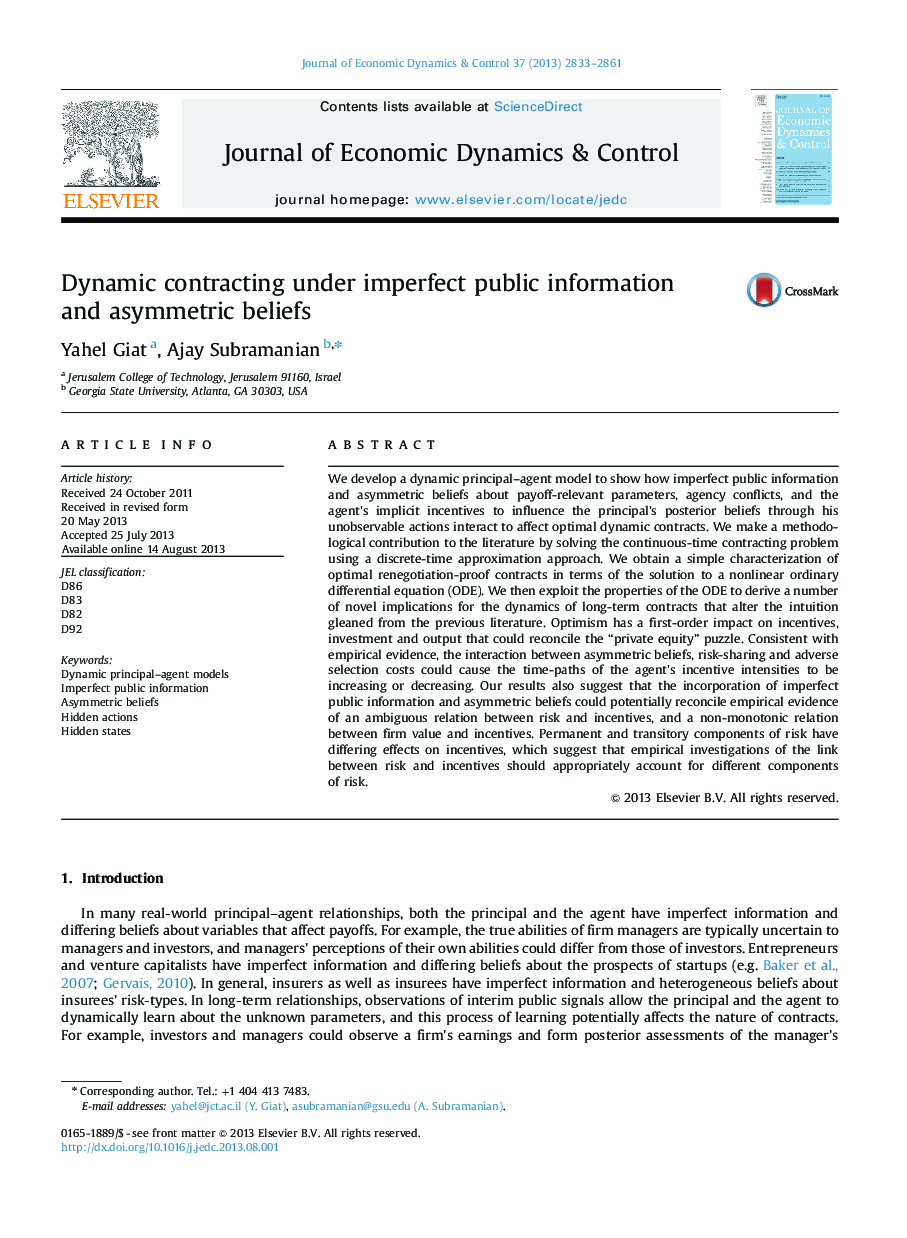| Article ID | Journal | Published Year | Pages | File Type |
|---|---|---|---|---|
| 5098676 | Journal of Economic Dynamics and Control | 2013 | 29 Pages |
Abstract
We develop a dynamic principal-agent model to show how imperfect public information and asymmetric beliefs about payoff-relevant parameters, agency conflicts, and the agent's implicit incentives to influence the principal's posterior beliefs through his unobservable actions interact to affect optimal dynamic contracts. We make a methodological contribution to the literature by solving the continuous-time contracting problem using a discrete-time approximation approach. We obtain a simple characterization of optimal renegotiation-proof contracts in terms of the solution to a nonlinear ordinary differential equation (ODE). We then exploit the properties of the ODE to derive a number of novel implications for the dynamics of long-term contracts that alter the intuition gleaned from the previous literature. Optimism has a first-order impact on incentives, investment and output that could reconcile the “private equity” puzzle. Consistent with empirical evidence, the interaction between asymmetric beliefs, risk-sharing and adverse selection costs could cause the time-paths of the agent's incentive intensities to be increasing or decreasing. Our results also suggest that the incorporation of imperfect public information and asymmetric beliefs could potentially reconcile empirical evidence of an ambiguous relation between risk and incentives, and a non-monotonic relation between firm value and incentives. Permanent and transitory components of risk have differing effects on incentives, which suggest that empirical investigations of the link between risk and incentives should appropriately account for different components of risk.
Related Topics
Physical Sciences and Engineering
Mathematics
Control and Optimization
Authors
Yahel Giat, Ajay Subramanian,
